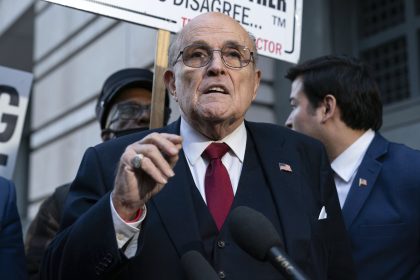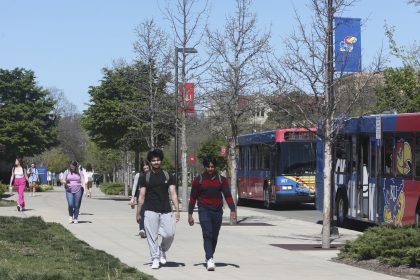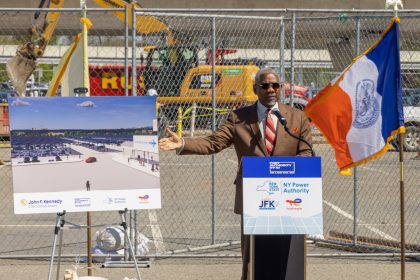Election Uncertainty Abounds as Florida Cleans Up From Hurricane Ian’s Fury

TALLAHASSEE — Hurricane Ian’s march through Florida and the Caribbean left at least 35 people dead in the Sunshine State, along with another three in Cuba, and caused anywhere from $66 billion to $75 billion in damage, depending on the estimate.
But as the cleanup and recovery began on Saturday, important questions about the storm’s impact on the upcoming midterm election hung in the air.
Some things, of course, are already known.
President Joe Biden, for instance, canceled a scheduled campaign swing that was supposed to extend from Fort Lauderdale to Orlando on Tuesday, and a number of candidates throughout the state quickly ditched planned events and used their social media sites to urge their fellow Floridians to begin hurricane preparations in earnest.
And on Friday morning Florida Secretary of State Cord Byrd suspended the then-imminent deadline for candidates to file campaign finance reports, pushing the deadline back to Friday, Oct. 7.
Notice of the change was posted on the Department of State’s and the Division of Elections’ respective landing pages, and emails were sent to both local elections supervisors and campaigns and committees, said Mark Ard, spokesman for the Florida Department of State.
In a statement provided to The Well News on Monday, Byrd said, “My primary concern and continued prayer right now is for the safety and wellbeing of Floridians, including Supervisors of Elections and their employees.
“Hurricane Ian has torn across Florida causing devastating damage and loss. The Department of State has been calling Supervisors of Elections in the counties affected by the storm to assess the situation and will continue to monitor the impact of the storm. We are considering all contingencies at the moment and will be in continual contact with Supervisors of Elections to evaluate the conditions of the affected counties moving forward,” he said.
But perhaps the biggest test for the state’s county elected officials is still ahead. Thursday continues to be the deadline under state law for them to mail out more than 180,000 absentee ballots that have already been requested by local residents.
Boyd said in a statement Saturday that he and his fellow state officials “are considering all contingencies at the moment and will be in continual contact with supervisors of Elections to evaluate the conditions of the affected counties moving forward.”
The early word from some of the hardest hit counties on Florida’s west coast suggests that election machines, ballots and other voting materials largely survived Hurricane Ian unscathed.
The problem is a number of county election facilities have lost power and in some cases, the tentative schedule for getting the lights back on is being measured in days, rather than hours.
Lee County Elections Supervisor Tommy Doyle, whose jurisdiction includes hard hit Fort Myers, Florida, told CNN Saturday that if the power isn’t restored by Sunday he’ll begin moving absentee ballot-related work to the east coast of the state in an effort to meet the Thursday deadline.
Shirley Anderson, supervisor of elections in Hernando County, north of Tampa on Florida’s west coast, said in an email to The Well News that the county suffered no losses from Hurricane Ian and as a result, her office was on track to begin mailing out ballots on Monday.
Leon County Elections Supervisor Mark Earley, president of the state association for Florida’s 67 election supervisors, told reporters on the ground in Florida that while many counties are still assessing the situation, most should be able to get ballots out by the deadline with a minimum of headaches.
The bigger problem may not manifest itself until in-person voting begins later this fall. The reality is Ian probably did destroy quite a few polling places, meaning local officials will have to either establish consolidated voting places and hustle to get the word out about their location, and/or encourage evacuees or others more lastingly displaced by the storm to request a mail-in ballot.
The state’s deadline for doing so is Oct. 29.
While some of the uncertainty across the state today can be attributed to the somewhat unpredictable path of the storm itself, critics are already suggesting that the administration of Gov. Ron DeSantis dropped the ball in responding to Hurricane Ian’s likely impact on the upcoming election.
For instance, Leon County’s Mark Earley sent an email to the Department of State and Division of Elections last Tuesday to ask if the state had any plans to provide flexibility to counties impacted by the storm.
Earley told Florida Politics he sent the correspondence because, as the association head representing the state’s 67 county election officials, he had not heard any update from state election officials.
Florida Politics pressed on with its inquiry, finally posing Earley’s question to DeSantis’ press secretary Bryan Griffin.
The publication reported Griffin responded with what was essentially a nonanswer, noting at the time that the mail-in ballot deadline was “quite a ways away.”
Of course, this isn’t the first midterm election potentially impacted by a major hurricane.
Lessons from 2018 Elections
In 2018, Category 4 Hurricane Michael slammed Florida’s panhandle just three weeks before Election Day.
Before the storm hit, then-Florida Secretary of State Ken Detzner, a Republican who held the post from 2012 to 2019, extended the voter registration deadline in counties whose offices were closed on the original deadline day due to the hurricane’s landfall.
In addition, his department reached out to election officials in counties in the potential path of the storm before it hit, and touched base with them again in its aftermath, to determine impacts to voting sites and the administration of the upcoming election.
As in the case of Hurricane Ian this week, election supervisors identified a number of obstacles to carrying out the election as planned, including damage to polling locations, extended telecommunications service disruptions, and large percentages of the counties’ population without power.
Also as has happened this weekend, supervisors of elections found little or no damage to voting machines and all election-related equipment, and said their ballots were secure.
Detzner then released a multi-part plan to address identified issues, a plan put into effect by executive order by then-Gov. Rick Scott.
In doing so, Detzner said his top priority was ensuring there were ample opportunities for Floridians impacted by Hurricane Michael, many of whom had lost their homes, to be able to cast ballots while protecting the integrity of the 2018 election.
To begin with, Executive Order 18-283 empowered supervisors of elections in eight counties to extend and enhance voting options based on needs and challenges they identified in their specific localities.
These steps included extending the amount of days of early voting, designating additional early voting locations and expediting the delivery and acceptance of vote-by-mail ballots.
The 2018 executive order also extended the registration date for poll watchers and mandated that steps be taken to ensure that Florida National Guard troops, first responders, law enforcement, volunteers, and utility power restoration workers engaged in the recovery efforts in the Panhandle and anyone who evacuated from the storm be able to cast a ballot.
A state restriction on vote-by-mail ballots being forwarded to a different address was also waived, as were provisions of the state election law that would have made it more difficult for storm-displaced Floridians to obtain vote-by-mail ballots.
One thing that was not allowed even under the emergency conditions in 2018 was voting by fax or email. As Detzner and Scott explained at the time, in the hardest hit areas, communication via phone, fax and email would likely remain challenging through that election day, making them unreliable methods for returning ballots.
An analysis by the Brennan Center for Justice, published last week as an op-ed in the Tampa Bay Times, said that the main lesson to be drawn from 2018 is that Florida must do everything it can in the wake of Hurricane Ian to keep polling places affected by the storm open or establish emergency poll sites in the same areas rather than making voters travel farther to vote.
While the Center lauds Scott for loosening mail-in voting restrictions, it believes the decision to allow counties to consolidate polling places was flawed by the fact no funding was allocated for emergency polling sites.
As a result, most counties consolidated polling places without adding emergency sites. In the eight counties covered by the executive order, the number of polling sites dropped from a planned 125 to 61.
The Center concedes some consolidation was inevitable. “After all, some polling sites really were destroyed,” it said.
But in addition to being flexible, it says Florida should have looked to other models — like the emergency sites that New Jersey erected for the 2012 election after Superstorm Sandy.
“The result from Florida’s failure to adapt? Turnout fell across the eight counties covered by the executive order,” the Centers’ researcher wrote. “And it fell by a lot — 7 percentage points. In voting statistics, that is a huge drop.”
It’s also noteworthy that despite Detzner and Scott’s efforts, and for the first time in Florida history, three statewide elections in 2019 resulted in recounts — those for governor, the U.S. Senate and commissioner of agriculture.
Dan can be reached at [email protected] and at https://twitter.com/DanMcCue.
























